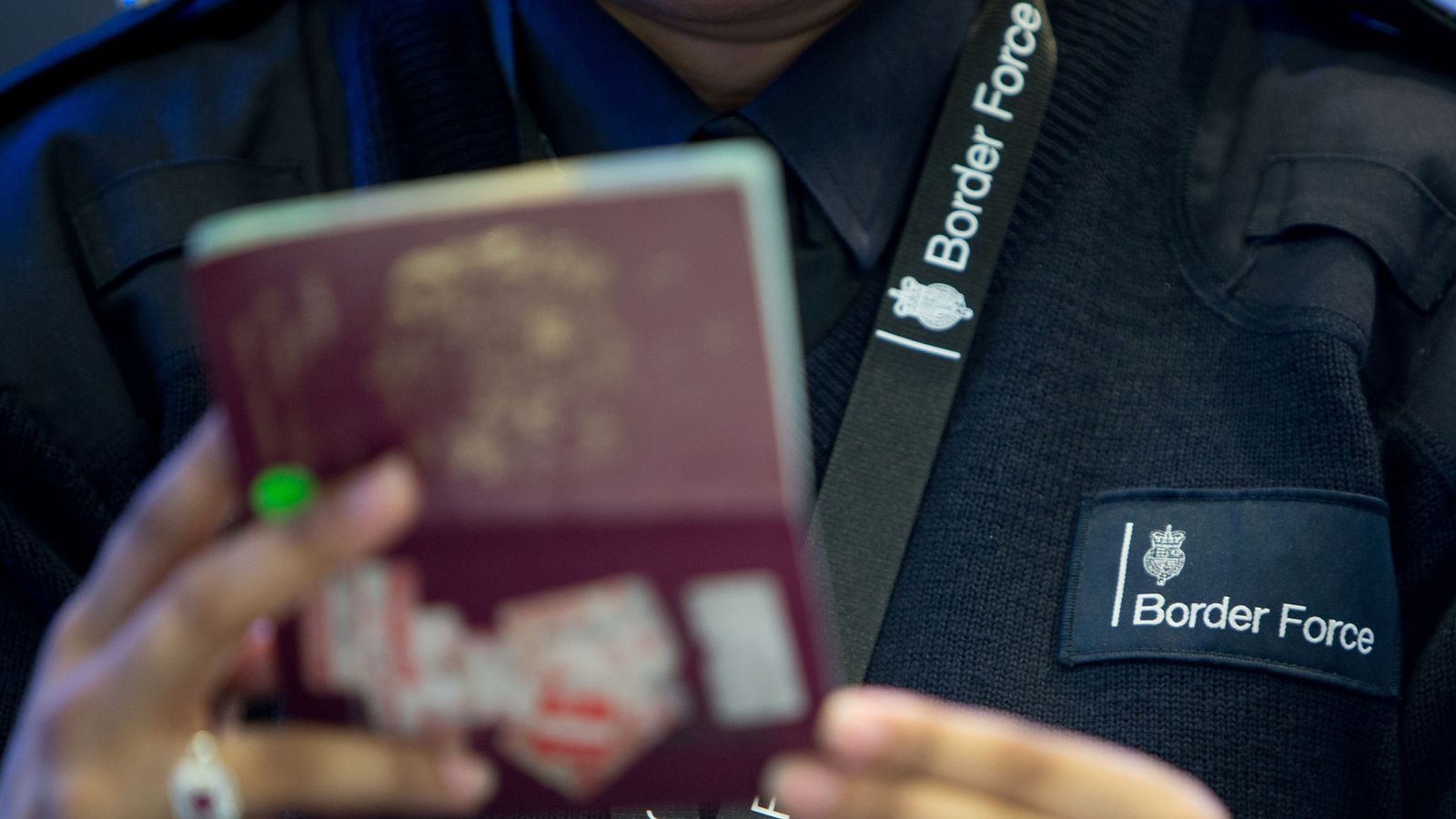Thousands of flights could be delayed as Border Force workers launch strike action

Hundreds of thousands of air passengers face possible delays today as Border Force workers become the latest to go on strike.
More than 1,000 employees will walk out, affecting passport control desks at Heathrow, Gatwick, Birmingham, Cardiff, Manchester and Glasgow airports, as well as the port of Newhaven in East Sussex.
The strike will last until early on Boxing Day, before another round from 28 December until early on New Year’s Eve.
More than 10,000 flights are scheduled to land at those airports during those times and more than 250,000 passengers arriving on Friday have been warned to expect delays.
The airports said that most departing flights would not be affected, although some arriving passengers – particularly those who cannot use eGates – could face delays.
Royal Mail employees will also be on strike today – their fifth day of action this month, in what Royal Mail said was a “cynical attempt to hold Christmas to ransom”.
The company has estimated that the strike, which will continue on Christmas Eve, has already cost it £100m.
National Highways workers in London and the South East will continue their four-day walkout which started on Thursday.
Read more:
Giving in to nurses on pay would ‘stoke’ inflation and have ‘huge impact’, says minister
Troops training at Heathrow and Gatwick airports ahead of Border Force strikes
Advertisement
The worker -, who plan, design, build, operate and maintain the roads – are following action by colleagues in Yorkshire and the Humber, northwest and northeast England.
Please use Chrome browser for a more accessible video player
2:49
‘Government has refused to talk to us’
Rail workers represented by the RMT union will strike from 6pm on Saturday until 6am on Tuesday 27 December, while East Midlands Railway will be affected by a strike on 23 and 24 December by the Unite union.
Driver and Vehicle Standards Agency employees will strike today and tomorrow in northwest England, and Yorkshire and the Humber, with more strike action expected in other regions over coming weeks.
Hundreds of bus drivers in south and west London employed by Abellio will strike tomorrow, 27 and 31 December, before a further eight days in January in their pay dispute.
They have already taken 10 days of action in the past two months.
Earlier this week, NHS staff were on strike, with nurses walking out on Tuesday and ambulance workers following them on Wednesday.
Pat Cullen, head of the Royal College of Nursing, said on Thursday that if she did not hear from Health Secretary Steve Barclay by the end of the day, she would announce further January strikes dates.
“The public is clear – as am I – that the way to avoid further strike action is for the government to stop prevaricating and repeating the same tired lines and step up to holding meaningful negotiations with me,” she said.
Click to subscribe to the Sky News Daily wherever you get your podcasts
The government has refused to negotiate on pay, insisting it is accepting recommendations from independent pay review bodies.
Ambulance workers, represented by Unison, have already announced further strikes, with workers in London, Yorkshire, the North West, North East, and South West walking out on 11 January and 23 January.
Please use Chrome browser for a more accessible video player
0:48
Health secretary criticises timing of ambulance strike
Some 25,000 ambulance workers from Unison, Unite and the GMB unions walked out in co-ordinated strike action on 21 December – their biggest strike in 30 years.
Members of the GMB union at nine ambulance trusts are also preparing to strike on 28 December, while 1,000 union members in the Welsh Ambulance Service are set to announce strike dates in the new year.
Unison general secretary Christina McAnea said: “It’s only through talks that this dispute will end.”
NHS trust leaders have warned that Christmas could be one of the most difficult the health service has seen, with strikes threatening to worsen an “already deeply challenging situation”.
Last week, one in four ambulance patients in England waited more than an hour to be handed to A&E teams at hospitals, latest figures show.